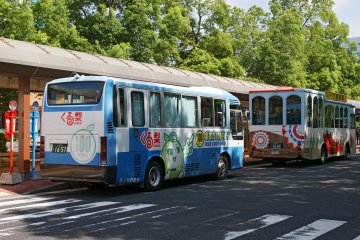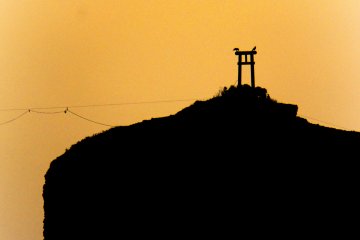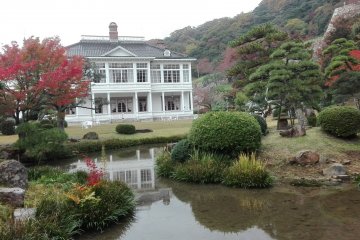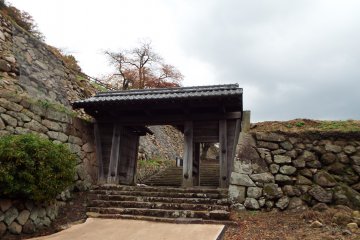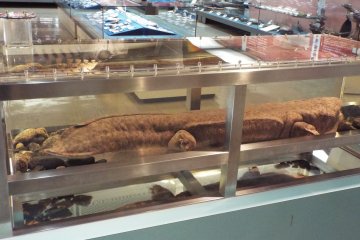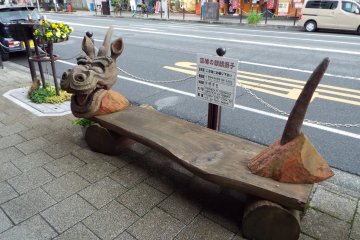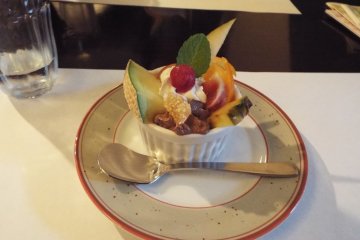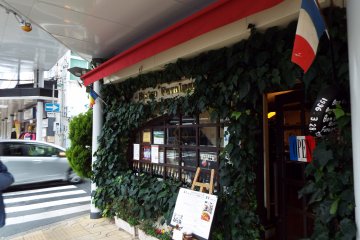Tottori Prefecture is the least populated prefecture in Japan. Our first day was full of activities and I did not expect that a small city of less than 200,000 people would have much to occupy our time while we waited to catch our plane back to Tokyo. I was in for a big surprise.
Whenever we travel to a new area I always ask for a map in English. During breakfast we studied the map of Tottori and found some old castle ruins that looked like a good way to fill in time. We decided to walk and soon came upon Ochidani Park, our first of many surprises for the day. The park was large with several good walking trails, the Toshogu Shrine, and Omyia Pond that beautifully reflected the fall colors from overhanging trees. What a great place for a morning walk.
A short distance away we came upon the Tottori Castle ruins. I have visited several castle ruins in Japan, but these were the best so far. As we were exploring the grounds a volunteer guide approached us and began sharing the history of the castle. The castle originally sat way up on top of Mt. Kyusho. I can see how well protected this castle was from its enemies.
It started to rain and so we decided not to hike up to the top where the original buildings sat. Instead we headed for a western style house that turned out to be The Jinpukaku, a National Important Cultural Property. It is a European style building designed by Tohkuma Katayama who is also famous for other great buildings in Japan. Jinpukaku was the first building in Tottori Prefecture to have electric lights. The ground floor features furniture from the Ikeda family. From the second floor balcony we could look directly at the beautiful Horyuin Garden. Jinpukaku was built in 1907 for use by then Crown Prince Taisho who later became Emperor of Japan.
A walk across the driveway is the Tottori Prefectural Museum, another pleasant surprise. For years I had heard of the Japanese Giant Salamander and wanted to see one up close. In the Natural History part of museum there is a live Giant Salamander, as well as a fully preserved one that allows you to see every detail of this interesting creature. I was also impressed with the Folk Culture section that showed what it was like here living back in the Edo period. It was a very nice facility including an excellent coffee shop that features tasty homemade sweets.
From the museum we walked back to center city in search of lunch before heading to the airport. Just a few blocks from the train station we found Bistro Furaipan, a French style restaurant. The food presented us was a work of art. We talked to Chef Tsuneo Okuhira who had studied French cuisine in France for several years. The meal was excellent and very reasonably priced, the last of our second day surprises before heading home.
We could have used a couple more days to explore the many historic and cultural attractions available throughout the prefecture. The food here is way above the norm with local dishes ranging from Squid Rice Malt, to Ago Chikuwa (Flying Fish).
Plan a trip to Tottori Prefecture and prepare yourself for many pleasant surprises.



